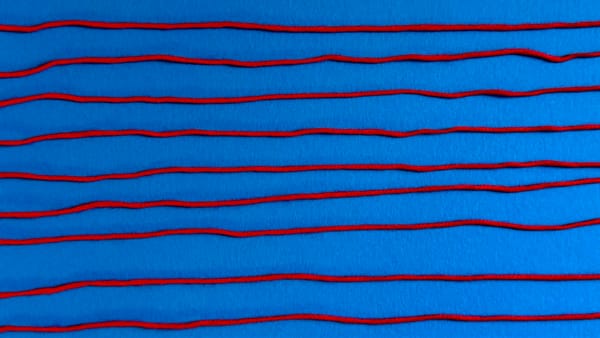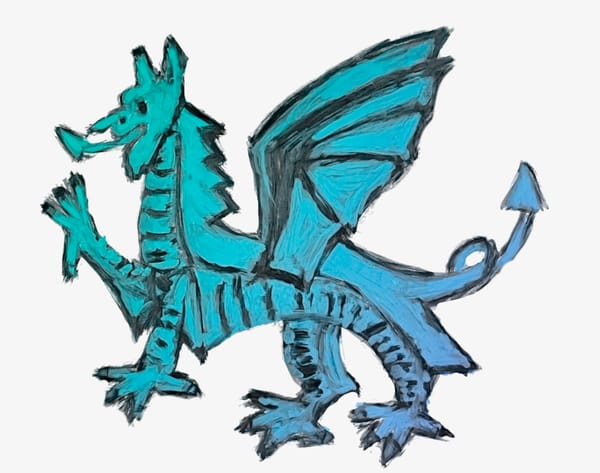The Dark Irony of Black Friday
"Black Friday" (the shopping day) may have inadvertedly borrowed its name from another Black Friday (November 22, 1963).

There is something a bit incongruous about a day called “Black Friday” being one of the biggest shopping day of the year. What's even more disconcerting is that the day's name may actually find its roots on November 22, 1963, the day President John F. Kennedy was assassinated.
So-called "black" days, especially "Black Fridays", as you'll read below, are historically not good at all. Like financial panics, natural disasters, massacres, and the like.
How could a "Black Friday" possibly viewed in a positive light? The common explanation for the association with the positive is the phrase “in the black”, which is derived from the use of black ink in accounting (as opposed to red ink). In other words, "Black Friday" is the day that stores began to make money from before the holidays.
And in the 1990s, every single time the term “Black Friday” was mentioned in association with this day, the writer for the NYT wrote that explanation.
The Friday after Thanksgiving – known as Black Friday in the retail industry by those who count on the season to turn their books the same color – has become less significant in recent years because more shoppers are doing buying closer and closer to Christmas, seeking markdowns in a game of chicken with merchants. The retailers acknowledge this and keep their inventories smaller.
NYT - Nov. 27, 1995
On a day retailers call Black Friday – for the black ink they hope will show up on balance sheets – department stores and discount shops, particularly those displaying sale signs, were filled with shoppers, many of whom said they were feeling flush and ready to spend.
NYT - Nov. 30, 1996
Thanksgiving and Shopping
There is nothing new about Thanksgiving marking the beginning of the Christmas shopping season. In fact, in 1933 several industry groups tried to convince President Roosevelt to move Thanksgiving up a week in order to help increase sales during the early years of the Great Depression. And in 1938, FDR did move up Thanksgiving a week, to extend the shopping season.
Because 1933 and 1938 were both years when November had five Thursdays. In 1941, when the date of Thanksgiving was finally officially set by Congress, it was initially written as "the last Thursday in November", but the Senate amended it to the "the fourth Thursday in November", which is what FDR ultimately signed.
The True(?) Meaning of Black Friday
I discovered a discussion on a linguists’ listserv from 2008 debating the etymology of the day after Thanksgiving, and it seems that they disagree with the “black ink” roots of the meaning.
It seems like the origins of the this term lay in Philadelphia, with the police referring to the day as “Black Friday” because it was the day before the Army and Navy game, in which tens of thousands of people swarmed their city every year, increasing traffic.
Philadelphia police and bus drivers call it “Black Friday” — that day each year between Thanksgiving Day and the Army‐Navy game. It is the busiest shopping and traffic day of the year in the Bicentennial City as the Christmas list is checked off and the Eastern college football season nears conclusion.
NYT, November 29, 1975
This matched with my own research which found annual references in local Philadelphia papers to "Black Friday" shopping trends, in the early 1980s, before anywhere else.
One of the participants had discovered a 1966 advertisement (written in the form of a column) which seemed to be the earliest that this Philadelphia phenomenon was recorded:
JANUARY 1966 – "Black Friday" is the name which the Philadelphia Police Department has given to the Friday following Thanksgiving Day.
It is not a term of endearment to them.
"Black Friday" officially opens the Christmas shopping season in center city, and it usually brings massive traffic jams and over-crowded sidewalks as the downtown stores are mobbed from opening to closing.
This year proved to be no exception – especially at Apfelbaum's.
Black Fridays
The Wikipedia disambiguation page for Black Friday includes financial crises, natural disasters - a tornado, a flood, disasters at sea, and bush fires in Australia, battles, terrorist attacks, explosions, police violence against protestors, massacres, World War II battles, labor and union-related events, and indictments of online poker companies.
A similar trend can be found on every single black day of the week.
- Black Sunday
- Black Monday
- Black Tuesday
- Black Wednesday
- Black Thursday
- Black Saturday
- Black Sabbath (besides for the band)
Unless there is a day that I missed, I wasn’t able to find a single positive black day.
Parenthentically, Good Friday, which is also referred to as Black Friday, and not because of all the black vestments worn by the members of the Western Church (as some may have you to believe), but because it’s the day Jesus died and was buried.
So why would anyone ever name a shopping day after any of those? It is almost as banal as “Memorial Day Sales”.
Origins of Black Fridays
Several of the great financial panics of the past have commenced on a Friday, and this has given rise to one of the pet superstitions of the stock exchanges and bourses of the world that the sixth day of the week is fraught with ill omen for those engaged in financial operations.
While I found one early origin that says that the Black Plague began on a (Black) Friday, and another that pointed to Jesus' death, the generally accepted earliest Black Friday was in 1745.
The term was first used in England, and was applied to the Friday on which the news reached London that Charles Edward, the "Young Pretender" to the throne, had arrived at Derby, in 1745. The tidings created a terrible panic in London.
It was a financial crisis.
Londoners immediately made preparations to fly from the city, and a panic prevailed. It was on that occasion that the Bank of England had its closest call in its long history. The citizens were anxious to take their money with them, and the Bank of England was besieged by an army of depositors. The bank escaped bankruptcy only by the expedient of placing "dummies" in the line to impede genuine depositors end by paying bonafide depositors in small coins, thus consuming much time.
Subsequently, it would be more than a century before the British recycled the term, in 1866, due to failure of one of London's largest banking houses – Overend, Gurney & Co.
A few years later in 1869, on the other side of the pond, Americans enjoyed their own first "Black Friday" which was when Jay Gould and James Fisk, Jr. attempted to create a corner in the gold market by buying all the gold in the banks of New York City, driving up the price, and then the crash happened.
And then:
The worst of all "Black Fridays" was that of 1873, when on Friday, September 18, it seemed that the whole financial structure of the world had crumbled into ruins.
(This was from a source written before 1929.)
"One of the Blackest Days"
President John F. Kennedy was assassinated on Friday, November 22, 1963.
A book published the following year of memorial addresses and newspaper editorials used the phrase "Black Friday" to describe the day more than a dozen times, and the adjective "black" too many to count.
That was about 1:30 p.m. Friday, November 22, a date which will live in infamy and perhaps be known as "Black Friday."
Stanly News & Press, Albemarle, N.C., Nov. 29, 1963
Friday, November 22, 1963, will go down in American history as one of the blackest days this Nation has ever faced.
Lewiston Evening Journal, Nov. 23, 1963
Those who lived through that black Friday will never forget it. The emotional shock was almost more than many could bear. Men's minds and hearts were shaken by extreme sorrow and at the same time anger and shame that this horrible thing should happen in the United States.
Greenville (Pa.) Record-Argus, Nov. 25, 1963
The devastating bulletins which on Friday afternoon began to inundate and darken our homes and offices - the cataclysmic bulletin that made last Friday the blackest Erev Shabbos in America's history - these bulletins, in spite of a grief-drenched weekend, still ring in our ears like a grotesque fantasy, a savage nightmare from which at any moment we hope to awaken.
Rabbi Jacob E. Segal, delivered at Adas Shalom Synagogue, November 25, 1963
It is as if the final shattering of our late President's life on that fateful black Friday caused his spirit to seep out and pervade a whole nation of people, and even the world.
Address by Hon. Dominick V. Daniels of New Jersey
Mr. Speaker, Friday, November 22, 1963, will be recorded as one of the blackest days in our Nation's history. For within a few horrifying and unbelievable moments on that black Friday, an assassin's bullet had robbed the United States of our beloved President, the world of a distinguished leader, and the Kennedy family of a loved one.
Address by Hon. Lester R. Johnson of Wisconsin
But nearly 50 years later, there was a curious typo on the other side of the pond. "The World's Money" a book about finance written by two former City Editors of The Times (of London) was published in 2012.
There have been several days in recent history outstanding for the size of the stock market losses - Black Tuesday, October 29, 1929; Black Monday, May 28, 1962; and Black Friday, November 23, 1963.
...
In the two hours after the news of President Kennedy's assassination on Friday, November 23, 1963, and before dealings were suspended the Dow Jones index fell 21 points.
Was November 22 (not 23!), 1963's sobriquet of "Black Friday" given because the Dow dropped 21 points, or because the president was assassinated? I would suggest that according to all the previous quotes in this section, the answer would be the latter.
The "Modern" Thanksgiving and Black Friday
As I had mentioned last week, President Abraham Lincoln was responsible for the Thanksgiving day as the national holiday.
President Abraham Lincoln declared Thanksgiving a national holiday on the last Thursday in November. Lincoln’s proclamation urged the nation to heal its wounds and restore “peace, harmony, tranquility and Union.”
To include an additional relevant memorial address for President Kennedy:
"The testimonies were vast that when the news came that he had been killed, that he was dead, that he had gone from them and would never speak again- there was shock, they were stunned, there was nothing to say, they could sit silent and weep.
The tears came - and nothing to say.
When they said "It is terrible" or "God help us" or "It is too bad" or "Good God,how sad" it was not as though they were talking to others but rather as though they were moaning to themselves and knowing very well no words were any use.
Thousands and thousands would remember as long as they lived the exact place where they had been standing or seated or lying down when the news came to them, recalling precisely in details and particulars where they were and what they were doing when the dread news arrived."
Those are the words of Carl Sandburg, describing what occurred throughout the land in the aftermath of the Black Friday, April 14, 1865, when Abraham Lincoln was shot. He might as well have been speaking of that other Black Friday, November 22, 1963, when John F. Kennedy was taken from us.
Address by Hon. William F. Ryan of New York
Football and Resolutions
As I noted earlier, the earliest sources of the shopping roots of "Black Friday" seemed to be connected with Philadelpha and the traffic during the Army-Navy game.
The stadium for the annual Army-Navy game in Philadelphia was renamed in 1964, from Philadelphia Municipal Stadium to the John F. Kennedy Memorial Stadium. Additionally, there was a resolution recorded in the book of his memorial addresses from the Hon. Herman Toll of Pennsylvania which says:
The 22d day of November will go down in history as the anniversary of the day that the people of the world were thrown into deep sorrow upon hearing of the assassination of President John F. Kennedy.
It was a day of sadness for all and will linger in the minds of mankind for many years to come.
It would be most fitting for the Congress of the United States to set aside November 22 of each year as a day when the people of our Nation can rededicate themselves to the ideals which were set forth by our 35th President; therefore be it Resolved, That the Senate of the Commonwealth of Pennsylvania memorialize the Congress of the United States to declare November 22 as President Kennedy Memorial Day.
During each of the years 1964, 1965, 1966, the Army-Navy game (and Thanksgiving) fell out during the same week as President Kennedy Memorial Day.
While I can understand how, during the course of a half-century (like with the case of "The World's Money" in 2012) or even a dozen years (with the case of the New York Times in 1975), people can forget and minimize a tragedy.
What I cannot understand is how the police officers in 1964 and 1965 would refer to a day of gridlock and the gridiron as "Black Friday", especially in light of the new name of the stadium and the Army-Navy game which Kennedy attended both years of his presidency, and had been excited to attend in 1963, would it have not been for the events of the "blackest of Fridays" in Dallas.
An alternative explanation is that they referred to the weekend as "Black Friday" in honor or memory of JFK, but over the years (or through black humor), the meaning was forgotten or supplanted. This theory would place "Black Friday" sales in the same odious category as a "Memorial Day sales", "Veteran's Day sales", and "Martin Luther King Jr. Day sales".
It doesn't make it much better, but it, at least, makes sense.



